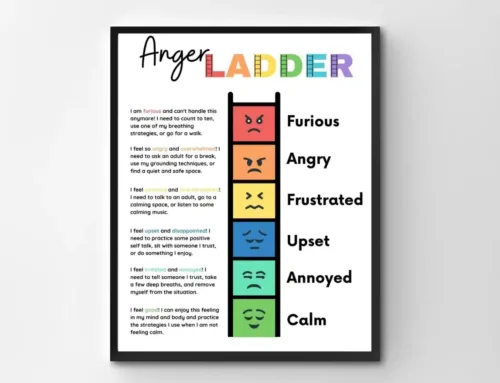Cognitive behavioural therapy (CBT) is a structured, evidence-based treatment for anger. It helps you identify the unhelpful thoughts and habits that fuel outbursts, then replace them with healthier patterns. You learn practical tools such as cognitive restructuring to reframe thoughts, relaxation skills like diaphragmatic breathing and progressive muscle relaxation, step-by-step problem-solving, and clear, assertive communication. With short, goal-focused sessions and regular practice between appointments, CBT reduces the frequency and intensity of anger, improves your recovery after triggers, and supports healthier relationships and wellbeing.
What is CBT for anger?
CBT teaches thought and behaviour skills that reduce anger fast.
In cognitive behavioural therapy, you learn to spot hot self talk, challenge unhelpful thoughts, and choose a safer response in the moment. The aim is anger reduction: fewer outbursts, faster recovery, clearer requests, and better relationship repair in daily life. Sessions are structured and brief, with clear skills to practice between appointments. Learn the foundations in What Is Cognitive Behavioural Therapy (CBT).
How does CBT reduce anger?
CBT changes appraisals, builds regulation, and fixes patterns using clear steps.
You work with the ABC model: activating event (A), belief or thinking (B), and consequences (C) such as feelings and behaviour. Core methods include thought challenging, controlled breathing and deep breathing, exposure to anger triggers in graded steps (exposure therapy), problem solving, and communication drills. Quick wins are a short pause, breath control, and assertive communication instead of attack or withdrawal.
See how CBT fits an anger plan in Anger Management.
What CBT techniques should I try first?
Use thought records, behaviour experiments, and a time out plan to create space.
Start a three line thought record: situation, hot thought, balanced reframe that lets you see the situation differently. Run a behaviour experiment: test a calmer script and log what happens in the problem situation. Set a two to five minute time out rule that both parties and family members know. Add progressive muscle relaxation or a two minute breath drill to help you feel calmer. For quick drills, see 10 Anger Management Tips.
How long does CBT for anger take?
Most programs run for six to ten sessions with weekly practice and a review.
Expect measurable goals, a midpoint check, and a relapse plan you can use later. You can work one to one or in a group, in person or online. Some patterns linked with mental health conditions such as anxiety, post traumatic stress disorder, or obsessive compulsive disorder may need a longer block or adjunct care.
When should I start CBT with a professional?
Start if anger is frequent, harmful, or hard to stop alone, and plan for safety first.
Red flags include weekly blow ups, threats, damage, or fear at home or work. Add couples sessions if conflict cycles repeat. A mental health professional will prioritise safety planning before skills. Compare options via Counselling Services.
Why do I get so angry so often?
High load, low recovery, and rigid beliefs shorten the fuse and speed reactions.
Sleep debt, stimulants, and constant demands lower tolerance. “Must” and “should” rules about respect or fairness add fuel, especially when you already feel angry or frustration is high.
There are loads of ideas are in How to Manage Stress.
What are anger issues and how do I know if I have them?
Check frequency, intensity, harm, and loss of control to gauge risk.
Look for weekly outbursts, regret after events, and feedback from others about safety or trust. Track one week of patterns: time, place, trigger, intensity 1 to 10, outcome.
For common signs and examples, read Anger and Frustration.
How does anger affect mental and physical health?
Repeated spikes strain the heart and disrupt sleep and mood over time.
Expect blood pressure surges, muscle tension, and poor sleep after conflict. Rumination loops keep negative feelings and anxiety going.
Learn the stress–body link in How Prolonged Stress Creates Illness.
Is anger a symptom of anxiety or depression?
Anger often co occurs with anxiety and low mood via shared threat pathways.
Both involve heightened threat focus and reduced tolerance for hassle. Treat mood and anger in parallel so gains stick, and include physical activity, breath, and coping strategies; start with What Is Anxiety.
Can I control my anger without professional help?
Yes, start with daily practice of simple CBT skills and track results.
Do two minutes of breath control and thought reframes twice daily. Use an I statement with one topic and a calm tone. Review what worked each week and adjust. Short mindfulness drills help; see Mindfulness. Quality online resources can support practice, though a therapist can tailor a treatment plan.
What are common triggers for anger?
Triggers cluster around fairness, respect, control, and overload, so plan for them.
Examples include interruptions, traffic, noise, deadlines, hunger, and overt criticism of children or family members. Map your top three triggers and pre plan one coping step for each, such as a breath reset or a respectful one line request.
How does anger affect relationships?
Frequent spikes erode safety, respect, and repair unless you change the cycle.
Criticism, defensiveness, and stonewalling increase distance. Repair in three steps: own the impact, validate the other person, and state a plan.
Scripts are in Resolve Conflict with Better Communication. Assertive communication is a core CBT strategy that protects the bond.
What are the signs of repressed or suppressed anger?
Look for tension, sarcasm, passive resistance, and global self blame.
Suppression hides the signal and increases later blow ups. Regulation uses techniques like breath, time outs, and one respectful request to express anger safely. Watch for shame language like “I am bad” rather than “I did wrong”; more on this in Implications of Chronic Shame.
Is it normal to feel angry all the time?
Brief anger is common, constant anger signals a pattern to treat and review.
Ask your GP to check for sleep apnoea, pain, thyroid, or medication effects. If anger persists and harms life roles, try a short CBT block using skills you can measure. See ideas in Anxiety Management Strategies.
What is the root cause of uncontrollable anger?
Stacked triggers plus hot beliefs and low skills drive blow ups, so treat the stack.
Fatigue, hunger, alcohol, and all or nothing rules work as accelerants. Use load reduction, reframes, and planned practice focused on your top triggers. If perfection rules keep the heat high, read Perfectionist or Obsessional Rigid.
What quick steps help today?
Use a two minute reset and one small change so progress starts now.
Breathe four by four, take a short pause, and lower your voice. Choose one change for a known trigger and review results in 24 hours. For the physiology behind breath and calm, see Role of Breath in Healing.
Where can I get CBT help now?
Book support if anger risks safety, health, or work, and tailor a program.
If self help stalls, a therapist or mental health professional can assess underlying reasons, agree goals (therapist agree), and suggest other therapies alongside CBT when needed. Contact The Energetics Institute to request an appointment.
Conclusion
CBT Therapy turns managing anger into learnable steps you can use under pressure. Notice the anger trigger, insert a pause, use relaxation and deep breathing, and replace a hot belief with a balanced line before you speak. Practise assertive communication, test coping strategies in behaviour experiments, and apply problem solving to real conflicts. If an anger problem sits with mental health concerns such as anxiety or PTSD, work with a mental health professional on an integrated treatment plan. With consistent practice over a few sessions, most people expect meaningful gains: fewer spikes, calmer talks, and stronger bonds at home and work.
Related Posts
Fees And Rebates
We offer cost-effective solutions that can fit within your budget. The insights and skills acquired in therapy can continue to positively impact mental and emotional health long after the therapy sessions have ended, making it a truly worthwhile investment in yourself.















